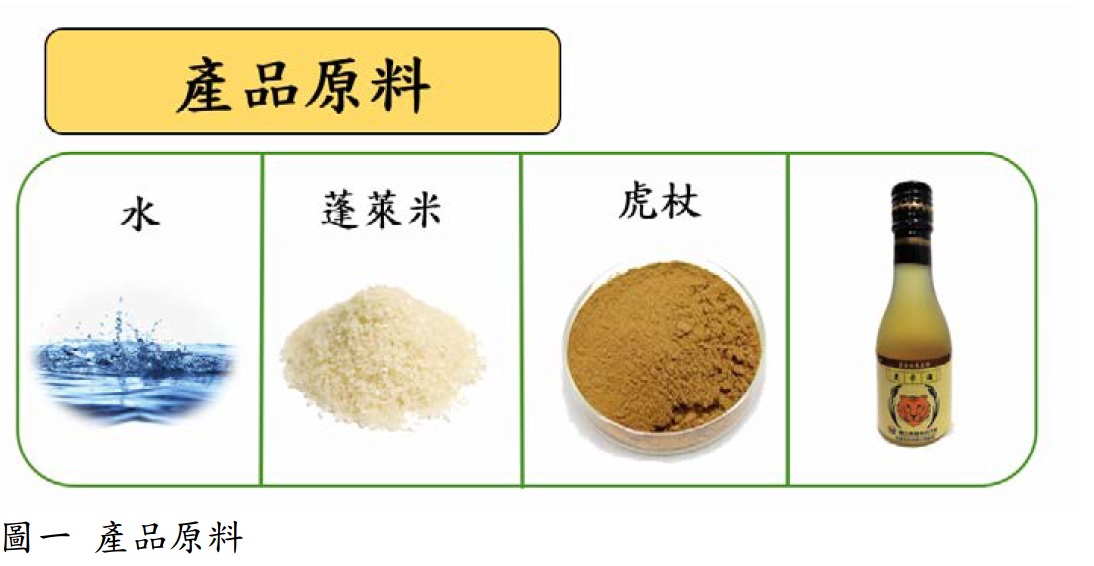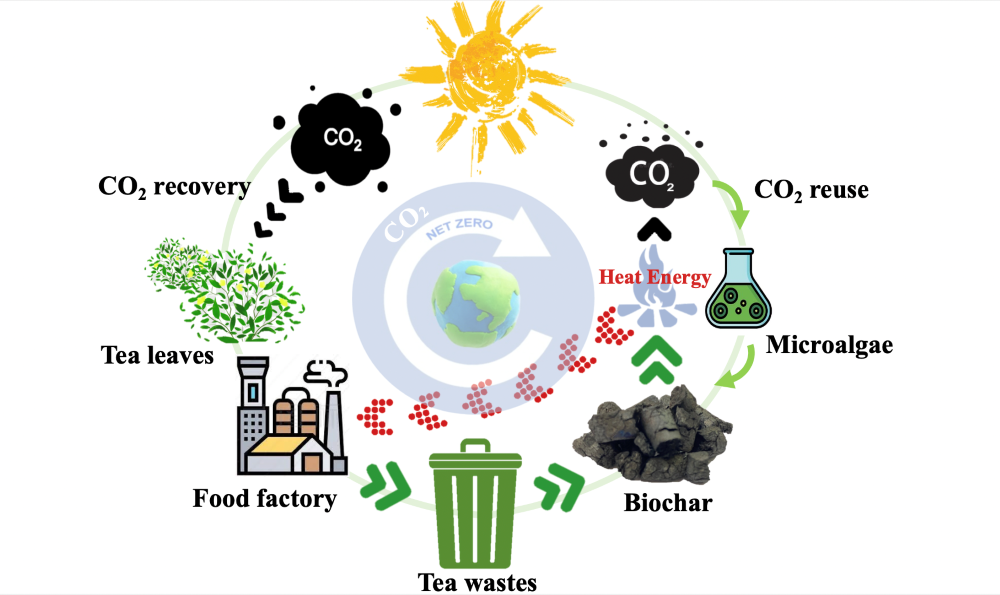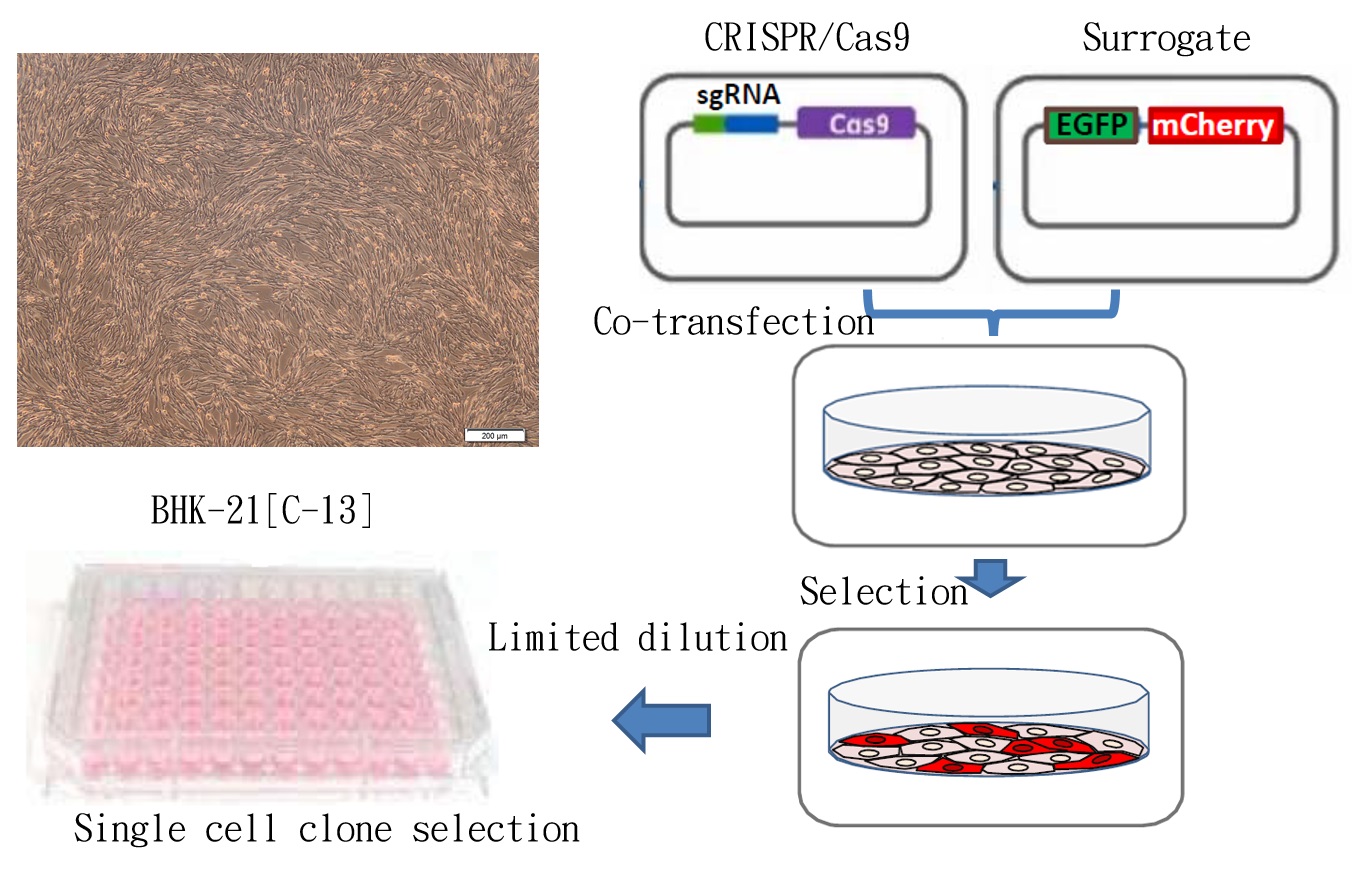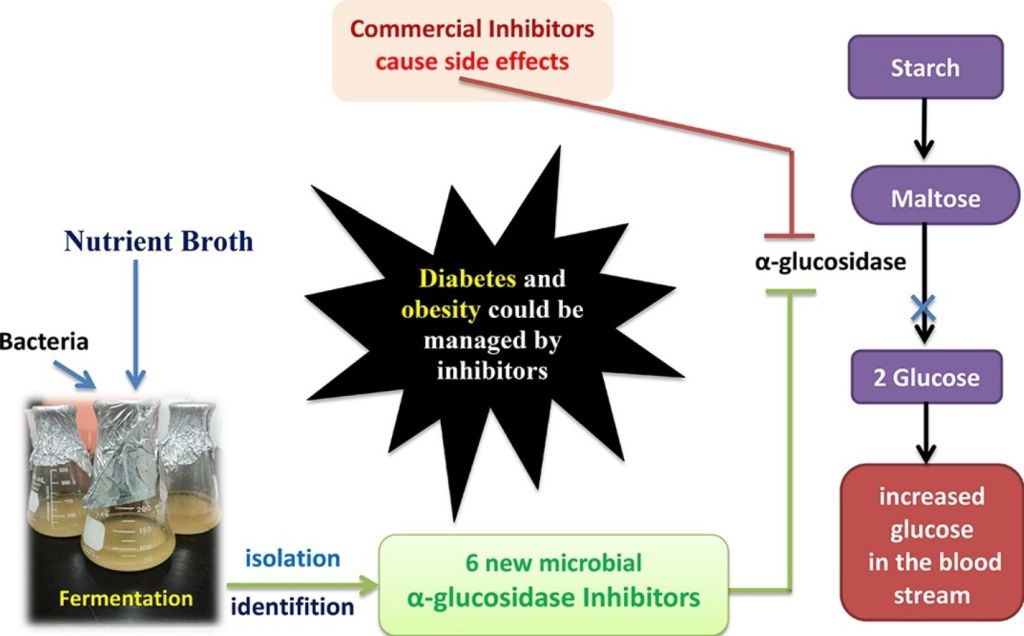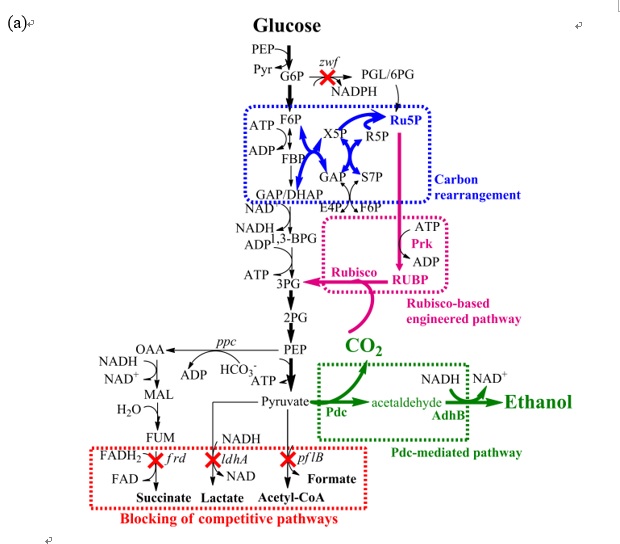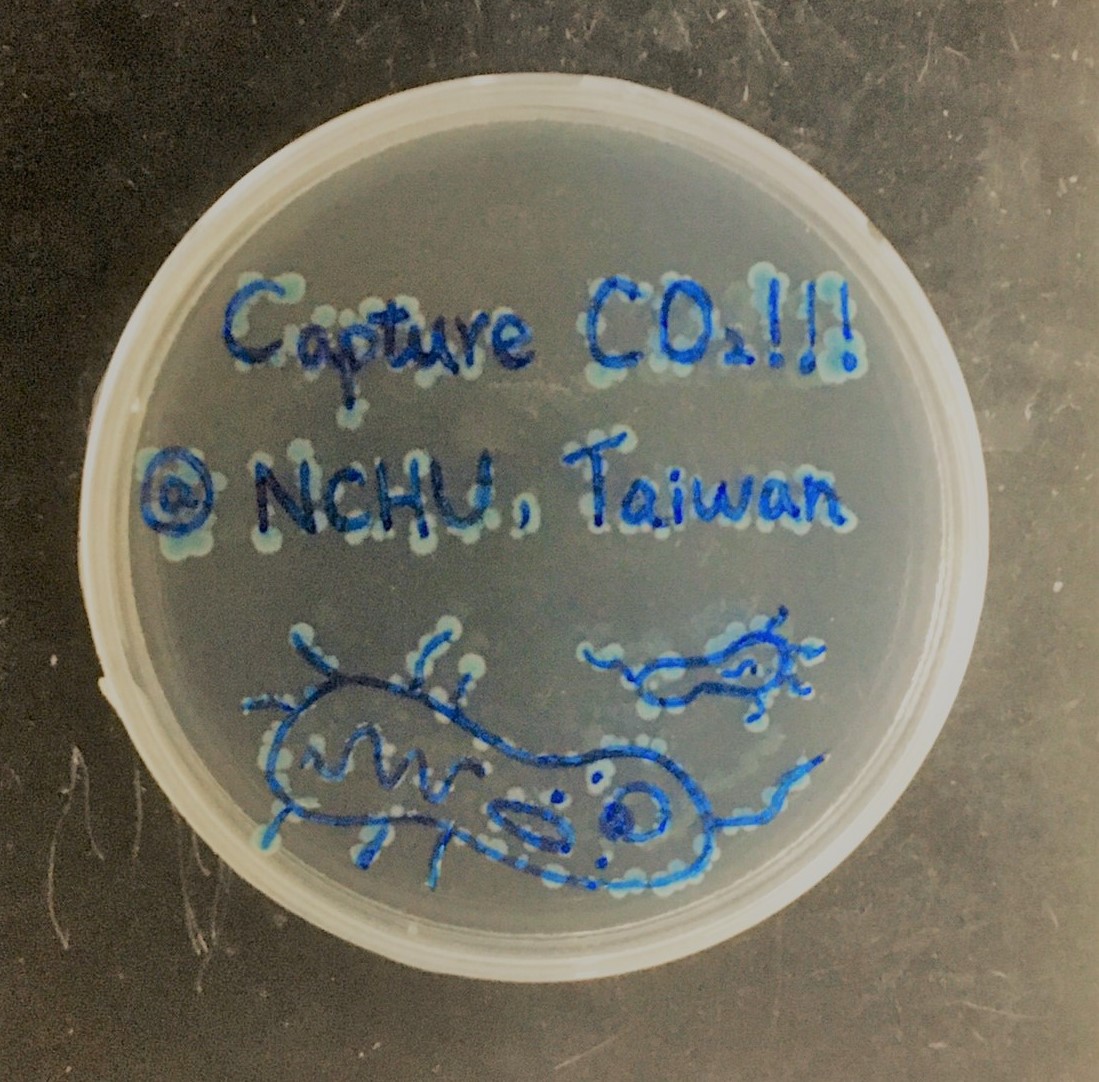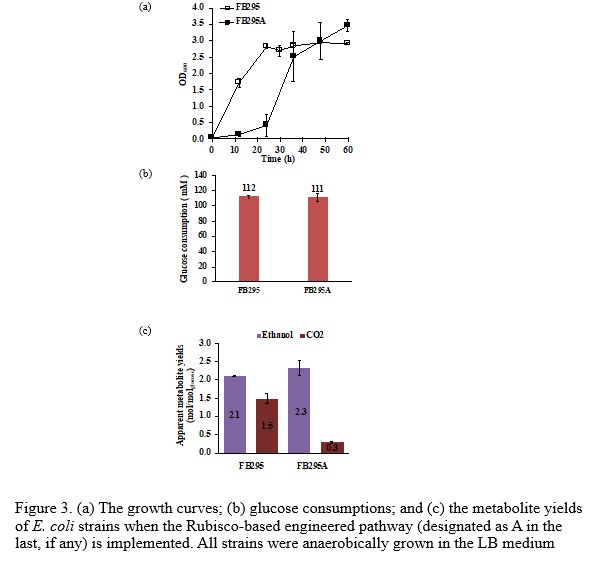| Technical Name | Mixotrophic ethanol production in Rubisco-based engineered Escherichia coli | ||
|---|---|---|---|
| Project Operator | National Chung Hsing University | ||
| Project Host | 李思禹 | ||
| Summary | A recombinant strain of Escherichia coli for ethanol production can simultaneously convert glucose and CO2 to ethanol. First, the pflB gene was knocked out of the E. coli (BL21(DE3) Δzwf ΔldhA Δfrd) chromosome to obtain strain FB. Then, the Pdc-mediated pathway was introduced to FB to obtain FB295. Finally, the Rubisco-based engineered pathway consisting of rbcLS and prk was introduced to FBL295 to construct FB295A. Practically homo-fermentative ethanol production can be achieved by FB295A in 60 hours where the ethanol yield, concentration, percentage/fermentation product, and CO2 emission/ethanol production were 2.3±0.2 mol/mol, 256±19 mM, 100 %, and 0.13±0.02 molCO2/molEtOH, respectively. By a sub-culture to the second generation, the fermentation time can be shortened within 30 h. The mixotrophic ethanol productivity was improved with the maintaining apparent ethanol yield of 2.4±0.1 mol/molglucose. The performance of FB295A reached 100% theoretical of the in situ CO2 recycling. |
||
| Scientific Breakthrough | Mixotrophic ethanol production increase the carbon usage of glucose from 66 to 80% by in situ recycling emitted CO2. The performance of our achievement reaches 100% of the theoretical maximum. We are the first group to establish the chemistry of mixotrophic ethanol production. The mixotrophic ethanol production can be done within 1.5 day. The production rate of mixotrophic ethanol production is comparable to the conventional ethanol production, which means a economic competitiveness. |
||
| Industrial Applicability | This study investigates a novel pathway for ethanol production and reaches a 100 % of the theoretical maximum. Mixotrophic ethanol can make profits from biofuels, hand sanitizer, and carbon trade. The in situ CO2 recycling technology developed here can be applied to other bio-based chemical and bio-based plastic productions. |
||
| Keyword | Mixotroph Ribulose-1,5-bisphosphate carboxylase/oxygenase Rubisco inhibition Carbon dioxide Ethanol Carbon tax Escherichia coli Carbon trade Anaerobic fermentation Metabolic engineering | ||
- a0912951308@gmail.com
other people also saw

